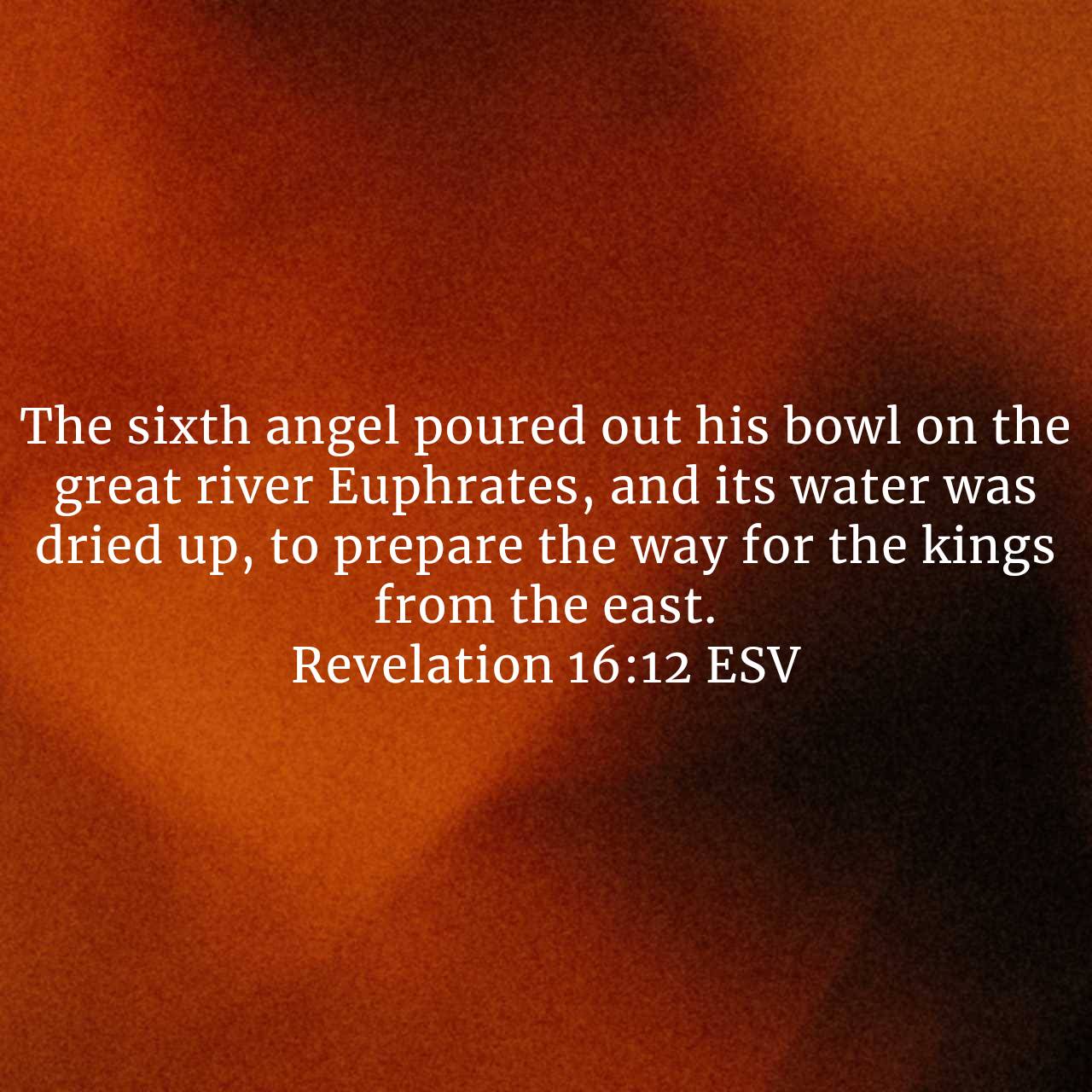Devotional 10 April 2025

This sixth bowl of judgment continues to mirror the trumpet judgments and reaches back to the Old Testament once again. The drying of the Euphrates calls to mind Cyrus’s conquest of Babylon (Isaiah 44:27–28), setting the stage for a new “Day of the Lord.” But this time, the city being judged is not pagan Babylon—it is Jerusalem, the “Great City” already named in Revelation 11:8.
This “Great Day” is not the final judgment of history, but the climactic act of divine justice against the covenant-breaking city that rejected her King. The Day of the Lord, like those in the prophets, is a specific moment in history where God judges rebellious people and vindicates His righteous ones. Here, the Euphrates is symbolically dried to prepare the way for Rome’s final advance under Titus, echoing the second phase of the Roman campaign that led to the destruction of Jerusalem in A.D. 70.
Out of the mouths of the dragon, beast, and false prophet come demonic spirits—deceitful proclamations and lying signs (cf. Exodus 8:1–6). Historically, this would include the propaganda and false religious omens used by Titus and Rome to stir up and justify renewed conflict, as well as the pagan superstitions used to rally eastern kings and mercenaries in the second campaign.
But behind all of it, God is orchestrating the fulfillment of His word. The prayers of the saints are being answered. The old age is passing away, and the Kingdom of the Lamb is advancing.
Let us remember: even the actions of the enemies of God are orchestrated towards God’s holy purposes (Genesis 50:20). Even as Cyrus, the Persian king, was once called God’s “anointed” (Isaiah 45:1), so too, Vespasian, and later Titus, would serve God’s will, as all rulers ultimately must bow to the King of kings, and Lord of lords.